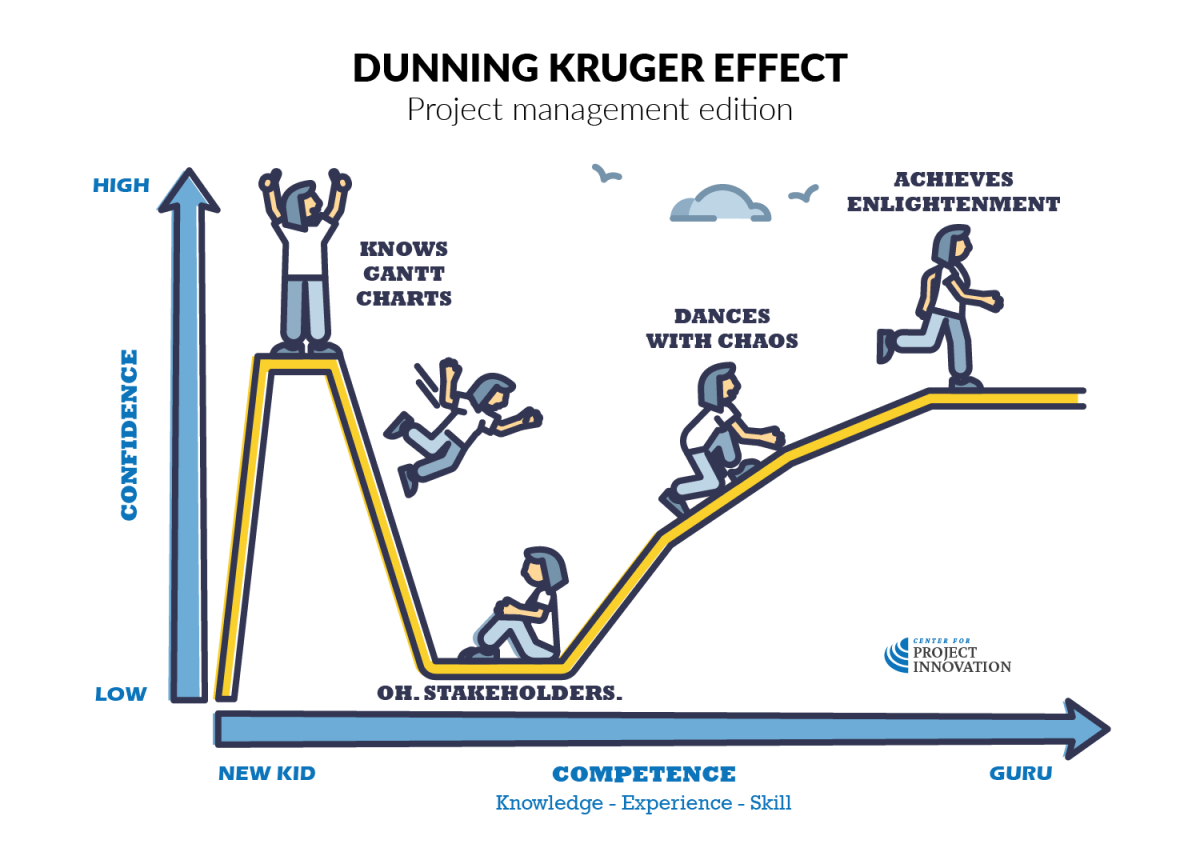The Dunning–Kruger Effect describes a cognitive bias where people with low experience or knowledge in a field overestimate their competence, while those with deeper experience often become more cautious and realistic about their abilities.
In other words, early confidence rises faster than actual capability, and real mastery often comes with a healthy dose of humility.
In project environments, this shows up when someone feels highly confident after initial training or a first successful delivery and believes they’ve “figured out” project management.
Over time—usually after encountering real-world complexity, stakeholder resistance, or governance friction—they begin to understand how much they still don’t know.
Far from being negative, this shift marks the beginning of true professional growth, where confidence is matched by judgment, reflection, and a more nuanced understanding of what good project leadership actually requires.
Recognizing this pattern helps project professionals stay open, curious, and grounded—confident enough to lead, but humble enough to keep learning.





